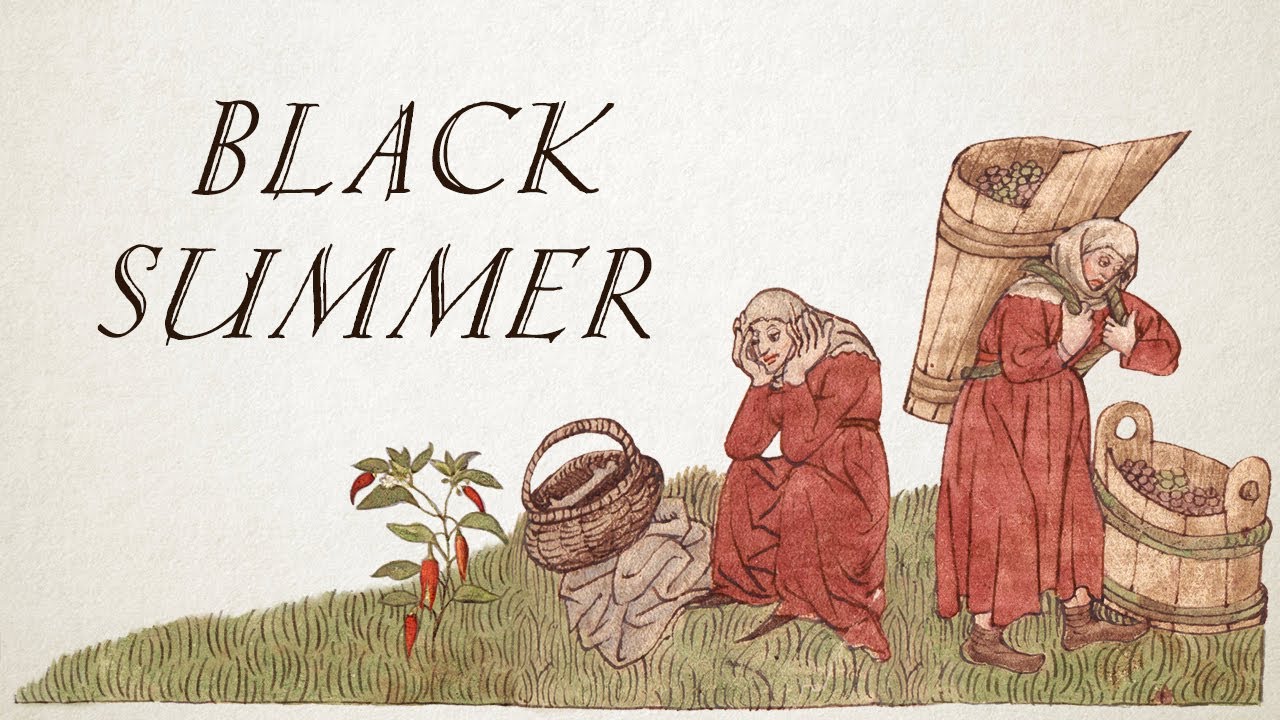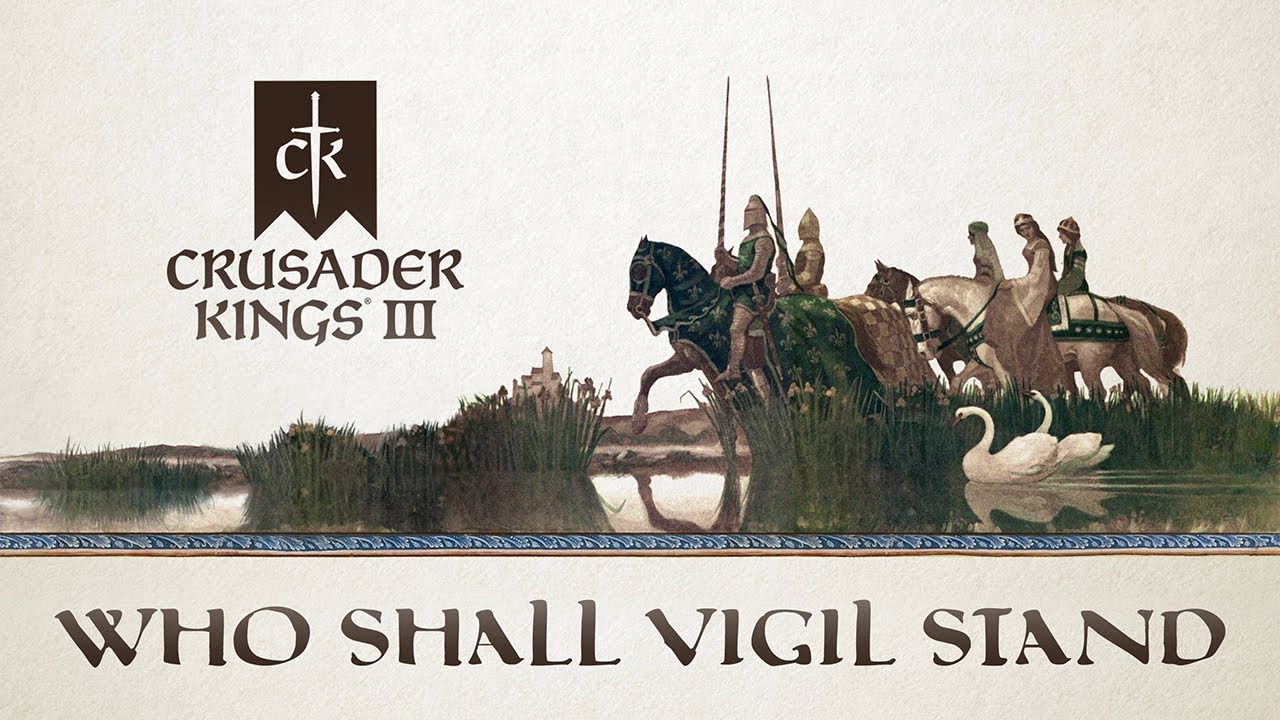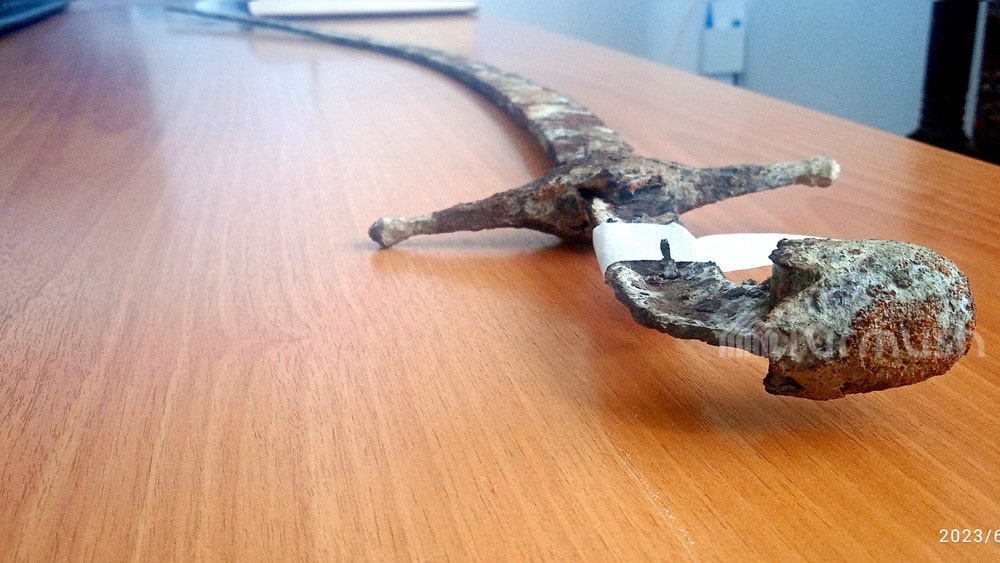- 9 Posts
- 48 Comments

 8·3 months ago
8·3 months agoFred’s absolutely a setup to have Brent Spiner appear as SOMEONE in some episode.
And given Season 3 of Picard, it might even be Data, with his new hybrid with-bits-of-Lore personality.
But it could be a human Soong too, or another Soong-type android (I absolutely hate they call them “synths”, all I hear is Fallout references.)
Edit: It just really stood out to me there was a line referencing that Fred might have “a family”.

 7·4 months ago
7·4 months agoIs this a nostalgia thing? Like how people who grew up without records now get vinyl for the looks or nostalgia of a time that was better or something?
The downside of optical disks for me was how easily they got scratched, plus you have to store them somehow (a big physical library takes up actual physical space, like the wall of a room), plus you have to get up and physically move something to play it. If you’re a super-neat person, perhaps this won’t be downside (I am not, and still have rips of a CD that used to be in my car and got scratched, so the rip has a part marred by skipping).
Also, are ordinary blu-rays kept in ordinary home conditions (that is to say, not archival and not climate-controlled or pitch-black) going to hang onto their data for 20+ years? Or is continually moving it to new SSDs and thinking about raid setups a better defense against data loss for an ordinary home media user? I remember vividly having old CDs and floppies that would not run years later due to becoming corrupted by physical media decay.
Anyway, I have no answers, just want to put some thoughts out there.

 4·7 months ago
4·7 months agoWhy is it whenever I find a new favorite anything, it’s Finnish? Most of my favorite bands are Finnish, I’m playing Alan Wake II and it’s great, I follow several Finnish comics artists. So much good stuff coming out of Finland.
Anyway, that site is awesome, I’m glad it was shared.

 19·7 months ago
19·7 months agoI’ve nibbled at trying to use Linux on my home computer for years and years, but games didn’t have a good track-record in Wine so I never went over.
I recently heard differently, and tried PopOS, and I’ve mostly been able to get all the games I wanted to play to play, mostly using Steam’s own emulation using Proton, and a few using Lutris.
The only two that gave me trouble were Starfield–it had a bug with Nvidia cards and I had to wait for a Linux driver to be updated with a driver fix. (And honestly after playing Starfield, it wouldn’t have mattered if it never played.) And Crusader Kings III…but only if I had it playing natively on Linux, as it’s supposed to be able to. It kept constantly crashing if I clicked on a character portrait. When I switched to playing it on Proton (so emulating Windows) it’s been rock solid.
I’ve played No Man’s Sky, Cyberpunk 2077, Rimworld, Control, Alan Wake II, Baldur’s Gate 3, and Valheim all successfully. (And Starfield and Crusader Kings III after some troubleshooting.) Those are modern enough that I don’t feel any more disadvantaged gaming on Linux than I did on Windows (accounting for my last-gen hardware and such.)

 4·8 months ago
4·8 months agoThe topographical features of the cave walls could also have inspired the artists’ imagination. Cave dwellers may have experienced pareidolia, the psychological phenomenon of seeing unintentional forms in nature, like seeing shapes in clouds. If a bulge of rock looks a little like a horse’s head, the artist might imagine the complete form, filling in the rest of the details.
For example, one newly discovered horse image measures around 460 x 300mm and is painted in red using variably spaced dots. It depicts the head with the corner of the mouth, an eye, an ear, and the beginning of the cervico-dorsal line. The figure makes use of natural features of the cave wall, with cracks in the rock incorporated into the outlines of the head and chest. The cervical-dorsal line adapts to a concave area of the wall.
I guess previously scientists were looking at the art like how you or I might look at a horse drawn on a piece of paper, but some of the art was more like going up to a funny rock sort of shaped like a horse, and adding onto it/altering it in order to show others how much like a horse (or whatever) the funny looking rock is.
Which kind of crossing between artistic mediums, from 2D painting to something more like sculpture.
Anyway, this is cool. I didn’t really consider that someone might do that with their art before reading this article.

 171·8 months ago
171·8 months agoI’ve never been a huge fan of “adult animation”, or really animation in general. So I had to get over that hill of bias. But once I did, I found I enjoyed this show. Those Old Scientists on Strange New Worlds is actually what made me go back and give Lower Decks a second try.
Anyway, I’m excited to see where season 5 goes. I also kinda want another live-action crossover.

 111·8 months ago
111·8 months agoEdit for others: Looks like I fell for your troll ragebait account.
(Or rather, it looks like your type of account has followed its propaganda marching orders from reddit and other places to make Lemmy shitty too.)
(For those unaware, pop fandom spaces are infiltrated by people stirring shit to keep a cultural miasma of misery going on, even for people who disconnect from overtly political/news subs as an attempt to try to avoid it.)
Still, I think what I said is useful, so I’ll leave it up for lurkers.
I’ve seen mindsets like yours coming into book fandom more and more as the years have gone on.
I’m going to say some things from a meta perspective that you might not like. And while I’m making assumptions, and they might even be wrong about you in particular, I think there’s still worth in trying to see my perspective, and trying to understand WHY I am saying what I am saying, and why I’m saying it in response to your post at this particular point in time, even if I’m wildly off base with you as an individual. You’ll probably learn more from doing that than by trying to get into a one-on-one argument with me over details. Like, even if I’m wrong with you–WHY did I choose to say this right now in response to your post? What details in your post made me react in this way?
So, as far as I can tell, looking in from the outside, it looks like takes like yours arise when someone is raised in a religious context, following a holy book of some sort (Bible, Book of Mormon, the Koran–any writing really that is supposed to be your highest moral guide), and then either has not left that religion, but is trying to understand other people’s moralities through the same lens because everyone they personally know forms their morality from the bible or another holy book (so surely everyone else must too? And maybe other people use Star Trek?), or comes from someone who HAS left but hasn’t yet examined old habits left over from that upbringing, and and thus brings them into new spaces, as you seem to be doing here with Star Trek.
Like, I see religious folks, or recently ex-religious folks who have not yet examined their inner drives to get over-involved with the media they consume. They interact with their show the same way they would interact with their church, or with the Bible or another holy book. Even if they claim they are no longer religious, they were still raised in a religious environment which has an effect on habits and thinking esp. re: the topic of morality, and emotionally fandom spaces and fandom drama can feel a lot like church from a socializing and discussion standpoint, so old habits of churchy stuff sometimes seep into fandom.
But not all people interact with stories in this way. In fact, when you look at how people actually interact with media, people often take bits and pieces here and there. They agree with some stuff, disagree or just ignore others, and transform things too. You can truth-check this by looking at your peers in school. How many times did a teacher say something, and someone next to you said it was bullshit? People take in, reject, and transform information all the time. Words are not a total telepathic mind-control, people have agency.
I’m a writer, and it’s fairly common to see a reader interact with what I said and take a totally different insight from what I said, because all of their life experiences are getting tangled up with whatever story I was trying to tell, and that MIXTURE is showing them something new that I might never have realized or thought of. And this is normal–this is how humans interact with fiction.
The idea that a work of fiction has to demonstrate moral things perfectly or else be doomed as irredeemably flawed is really in my opinion more of a religious-brain thing. And no, maybe you didn’t say that directly, but I question the drive behind why you posted this post, listing the things you did. I question your motivations and assumptions. Approaching Trek asking the questions you do doesn’t align with how people actually interact with media in my experience, but it does align with how I’ve seen people utilize religion, and holy books in particular.
I’d encourage you to look up a community college and see if there’s any ethics classes you can take. I had to take an ethics class for the degree I was working on. I didn’t actually want to, as I’m in my 40s and comfortable with my sense of morality–but it ended up being shockingly useful, because it laid out different frameworks in which people can evaluate the morality of something, and the pros and cons of each. It kind of started with the “gut feeling” a lot of people use when they feel more than think, then progressed through religious frameworks, then a few philosophers, and then storytelling frameworks, and basically gave me a lot of different and new tools to evaluate things I hadn’t explicitly had before. It was very useful, much to my own surprise, and I’d recommend the experience to everyone if they go to college.

 372·8 months ago
372·8 months agoIf I had to guess–and this absolutely isn’t an excuse–because the day laborers were immigrants speaking Spanish, there was probably a combination of cultural and language barriers. Someone who grew up in, say, Mexico, where cartel shit happens, might communicate and have body language different from what is expected when reporting something like chopped up body parts, making them more likely to be brushed off by authorities who might misinterpret what’s going on.
Many years ago, I read an article where a serial rapist who (mainly) preyed on elderly women failed to get caught as quickly as he could’ve been because his very first “test” victim was a teen girl in a foster home. She reported it to authorities, but it turns out that because she came from a bad home and had been raped before, police brushed her off as being attention-seeking because she “didn’t act” like they imagined a rape victim “should” act (because she already had mental defenses in place from prior sexual violence–so she didn’t act as "hysterical’ as they thought a rape victim “should”.) It was a female detective later down the line who put the pieces together, and connected her report to the ones with the elderly women.
People absolutely have existing baggage and ideas of what certain events “should” look like, which don’t necessarily line up to reality.

 5·9 months ago
5·9 months agoThank you!
(I had to check I didn’t secretly have that one already too–this time I don’t, but it’s going on my wishlist.)
For a new watcher, especially a young one, Strange New Worlds is probably the best start. It has a lot of the classic “Trek” philosophy going on, but paired with modern production and special effects, and also paired with more modern treatment of female characters.
I love The Next Generation, that’s “my Trek”, but certain things haven’t aged well.
I’ve been watching Babylon 5 for the first time (didn’t see it when it was actively airing), and while it’s not Trek, it was produced in the same era as TNG, Voyager, etc. and I find myself jarred by certain ways they portray characters, esp. female ones, and that same sort of stuff is present in older Trek too. Like, Crusher and Troi got absolutely cheated when it came to great arcs and such. Strange New Worlds handles its female characters much, much, MUCH better.

 6·9 months ago
6·9 months ago- Section 31 seems to be moving forward - Michelle Yeoh had the chance to move on but I guess she’s putting herself behind the project instead of ditching it, as she conceivably could given how her career is going and all the new opportunities she likely has knocking on her door. The show is called a “movie event” in the article.
- Starfleet Academy is going forward - Tawny Newsome (Mariner from Lower Decks) is on the writing team for that.
- The final season of Discovery is coming out next year, and they were allowed to do some reshoots as it’s the final season.
.
Personally, I really hope that Saru makes the transition to Starfleet Academy. I love him to bits and Doug Jones could do a ton more with his character if given the chance. I also suspect, due to the way Picard ended, that Brent Spiner’s Data in some form or another might show up as an instructor, maybe as a guest star. I’d actually really like to see a Lore-influenced-Data bringing the snark in a classroom. Data’s earnestness and Lore’s sense of humor are especially charming when combined together, and we only saw a bit of it at the end of Picard. And I’d love to see Saru and Data interacting.
Pelia is also long-lived enough to show up, and she was an instructor prior to becoming the Enterprise’s Engineer. They’ve already set her up to be replaced by Scotty, so I could see the actress moving to Starfleet Academy, since we already know her time on the Enterprise is limited.
Unrelated to Starfleet Academy, I do notice there’s no word on a post-Picard series starring Seven of Nine–I hope that’s mostly because the strikes disrupted early planning or something.
But they set Picard up perfectly to spawn a new series from that and I’d absolutely LOVE to see Seven of Nine as Captain of her own Starfleet ship, and Jack would make an interesting foil to Wesley as the cocky ensign. I think with the topic of AI being a thing now, and all the loose ends with the Borg and with Data’s offspring (and Data himself), we could actually really use right now a series that talks a lot about AI. I imagine interaction with Jurati-Borg could be an ongoing arc. And Soji could appear and we could get some interaction with Data to tie off that storyline.

 9·9 months ago
9·9 months agoI googled “Muji flashlight” because I had no idea who or what Muji was, and found this:

 1·9 months ago
1·9 months agoIt worked. I’m seeing it on lemmy.world using Firefox. I’m not using any of the special front-ends.

 2·9 months ago
2·9 months agoWell, in the context of a world where stories are being told, Spock always being perfect even when young and figuring this stuff out wouldn’t lead to any interesting stories.
Personally, I’ve seen his story with T’pring as a variation on the very common struggle people who grow up in strict cultures go through. Some of those individuals break away from their cultures, some come to terms with it personally.
Spock’s been interesting in that he chooses his Vulcan side ultimately. I think most character stories go the other way–the uptight, rules-following individual breaking away from the rigid culture that nurtured them. Spock in contrast finds a balance.

 1·9 months ago
1·9 months ago“Tomb beverage” sounds like some sort of horrible euphemism involving embalming fluid…or worse.

 4·9 months ago
4·9 months agoThey took that X away from me a few days later. I’ve switched to Freetube and it’s been pretty smooth.

 2·9 months ago
2·9 months agoI’ve been using it on Linux and it’s pretty nifty.

 3·9 months ago
3·9 months agoHuh, that’s an interesting theory. I like it.
Reminds me of how things like flood myths might have actually come from times of great natural disasters that got passed down in stories.
I’ve also always wondered if stories about elves, dwarves, etc. are ancient, tattered memories of prehistoric times when homo sapiens was not the only hominid walking the earth.
We overlapped with Neanderthals, Denisovans, Homo floresiensis, etc. (And interbred. https://www.nationalgeographic.com/science/article/enigmatic-human-relative-outlived-neanderthals ) So there was a time when anatomically modern humans walked the earth when other almost-human-but-not species still lived.
And it’s always seemed to me the variety of almost-humans in mythology from around the world might be in some cases an ancient memory of that.
Yeah, cultivating a growth mindset is really, really important. And it really is cultivating…you’ll have a hundred reasons why you “can’t” knocking on your door, and you’ll have to be persistent to slay each one.
But once a “growth mindset” is habit, it gets easier.









It can be other things. Some of why I didn’t get stuff done when younger was actually a symptom of PTSD from unrelated trauma. Basically my stress response is messed up and so anything I could link to stress or shame can make me avoidant, which snowballs into not doing the thing and more stress.
When I unlinked daily tasks from shame and stress I could suddenly do them, as I actually have ok executive functioning when PTSD isn’t messing with me to cause avoidance which as I understand would not really be the case for ADHD. Although PTSD and the like can also pop up in ADHD people who were bullied for their symptoms.